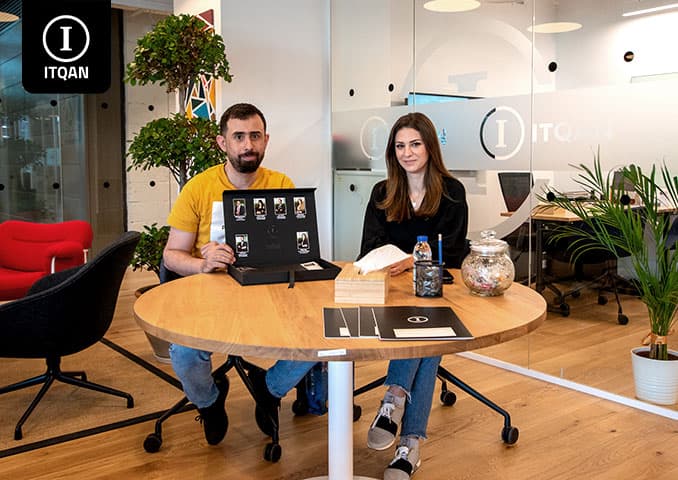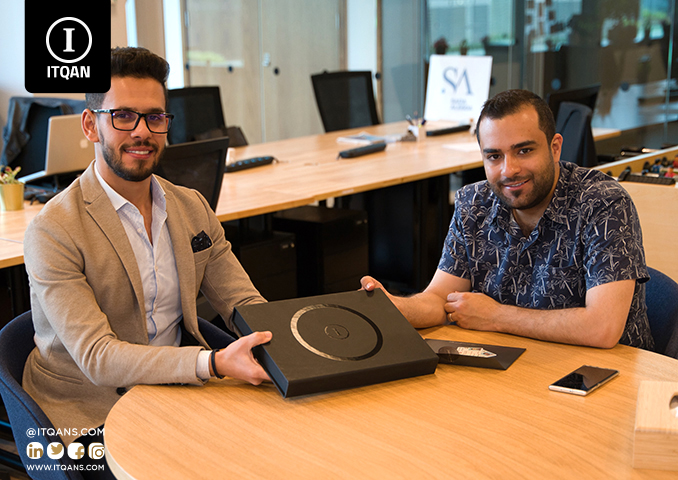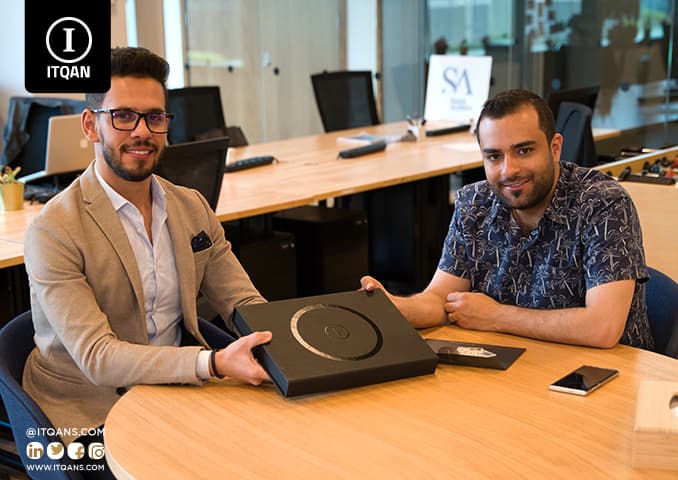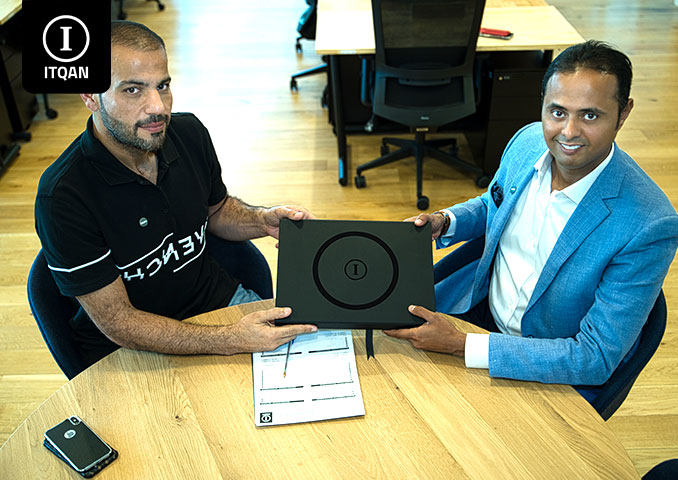Dubai, a global business hub, continues to attract entrepreneurs and businesses from around the world. Its strategic location, world-class infrastructure, and business-friendly environment make it an ideal destination for establishing a business. One of the critical steps in setting up a business in Dubai is opening a business bank account. This process, while straightforward, requires a clear understanding of local regulations and requirements, especially for foreign investors.
In this article, we will guide you through the essential steps to create a business bank account in Dubai as a foreigner. From understanding the necessary documentation and eligibility criteria to choosing the right bank and navigating the application process, we aim to provide you with a comprehensive roadmap. Whether you are a seasoned entrepreneur or a newcomer to the Dubai business scene, this guide will help you establish a strong financial foundation for your venture.

جدول المحتوى
ToggleUnderstanding the Requirements
Before embarking on the journey to open a business bank account in Dubai as a foreigner, it is crucial to comprehend the various requirements and prerequisites involved. This section delves into the key aspects you need to be aware of to ensure a smooth and successful application process.
A. Eligibility Criteria
The first step in establishing a business bank account in Dubai is understanding the eligibility criteria. Not all individuals or entities may qualify, and banks have specific requirements that must be met. Generally, the following criteria apply:
1. Business Registration: Your business must be legally registered in the UAE. This involves obtaining a trade license from the relevant authorities, such as the Department of Economic Development (DED) for mainland businesses or the respective Free Zone Authority for free zone entities.
2. Residency Status: While it is possible for non-residents to open business accounts, having a UAE residency visa can streamline the process. Some banks may require at least one shareholder or director to hold a residency visa.
3. Business Activity: Certain business activities may have restrictions or additional requirements. Ensure that your business activity is not on the prohibited list and is in line with the bank’s policies.
B. Necessary Documentation
Proper documentation is vital to the account opening process. Banks in Dubai typically require a comprehensive set of documents to establish the legitimacy and operational scope of your business. The essential documents usually include:
1. Trade License: A copy of your valid trade license issued by the DED or the relevant Free Zone Authority.
2. Shareholder and Director Information: Copies of passports, visas, and Emirates IDs (if applicable) for all shareholders and directors of the company.
3. Memorandum and Articles of Association: Legal documents outlining the company’s structure, purpose, and operational guidelines.
4. Board Resolution: A formal resolution from your company’s board of directors authorizing the opening of a bank account and specifying the authorized signatories.
5. Proof of Address: Utility bills or tenancy contracts to verify the business address.
6. Financial Statements: Recent financial statements or audit reports, especially for established businesses, to demonstrate financial stability.
C. Initial Fees and Deposits
Opening a business bank account in Dubai often entails certain fees and initial deposit requirements. These can vary significantly between banks and account types, so it’s essential to be aware of these costs upfront:
1. Account Opening Fees: Some banks charge a nominal fee for processing the account opening application. This fee can range from a few hundred to several thousand dirhams, depending on the bank and the complexity of your business structure.
2. Minimum Balance Requirements: Many business accounts in Dubai have a minimum balance requirement that must be maintained. This can range from a few thousand to several hundred thousand dirhams, depending on the bank and the type of account.
3. Transaction Fees: Be mindful of any transaction fees that may apply, such as charges for wire transfers, cheque processing, or foreign currency exchanges. Understanding these fees will help you choose the most cost-effective banking solution for your business.
By thoroughly understanding these requirements—eligibility criteria, necessary documentation, and associated fees—you will be well-prepared to navigate the process of opening a business bank account in Dubai. This preparation will not only save time but also enhance the likelihood of a successful application.

Choosing the Right Bank
Choosing the right bank for your business account in Dubai is a crucial step that can significantly impact the ease and efficiency of your financial operations. The banking landscape in Dubai is diverse, offering a variety of options tailored to different business needs. To ensure you make an informed decision, consider the following factors:
A. Types of Banks Available
In Dubai, you can choose between local banks, international banks, and Islamic banks, each offering unique advantages:
1. Local Banks: These banks are based in the UAE and may offer better local market insights and familiarity with local business practices. Examples include Emirates NBD, Mashreq Bank, and Dubai Islamic Bank. Local banks often have extensive branch networks and ATM availability, making them convenient for day-to-day transactions.
2. International Banks: These banks are globally recognized institutions that provide a wide range of services and international banking facilities. Examples include HSBC, Citibank, and Standard Chartered. International banks are ideal if your business deals with a lot of cross-border transactions or if you prefer a bank with a global presence and reputation.
3. Islamic Banks: These banks operate in compliance with Sharia law and offer interest-free banking services. Examples include Dubai Islamic Bank and Abu Dhabi Islamic Bank. If your business requires Sharia-compliant financial products, Islamic banks are an excellent choice.
B. Comparing Services and Fees
Different banks offer varied services and fee structures, so it’s important to compare these aspects before making a decision:
1. Account Services: Look into the types of business accounts offered, such as current accounts, savings accounts, and multi-currency accounts. Ensure the account you choose meets your business needs, whether it’s for daily transactions, savings, or international dealings.
2. Transaction Fees: Banks may charge fees for various transactions, including wire transfers, cash withdrawals, and currency exchanges. Compare these fees across banks to find the most cost-effective option for your business.
3. Additional Services: Consider what additional services are available, such as online banking, mobile banking, trade finance, and merchant services. These can enhance the efficiency of your business operations.
C. Customer Support and Accessibility
Effective customer support and accessibility can make banking more convenient and less stressful:
1. Customer Service: The quality of customer service can vary significantly between banks. Look for banks that offer dedicated relationship managers, 24/7 customer support, and multilingual assistance, especially if you are not fluent in Arabic.
2. Branch and ATM Network: Consider the bank’s branch and ATM network, especially if your business requires frequent cash deposits or withdrawals. A bank with a widespread network will provide easier access to services across Dubai.
3. Digital Banking: In today’s digital age, robust online and mobile banking platforms are essential. Ensure the bank offers a user-friendly and secure digital experience for managing your accounts remotely.
Taking the time to research and compare these factors will help you choose a bank that aligns with your business needs and operational requirements in Dubai. The right banking partner can provide the financial stability and support necessary for your business to thrive in this dynamic market.
Application Process
Creating a business bank account in Dubai as a foreigner involves a structured application process. This section outlines the steps you need to follow to ensure a smooth and successful application.
A. Filling Out the Application Form
The first step in opening a business bank account in Dubai is to fill out the application form provided by your chosen bank. Most banks offer both online and paper forms. The application form will typically require detailed information about your business, including:
- Business name and trade license number
- Type of business activities
- Personal information of the business owners and authorized signatories
- Contact details, including physical address, phone number, and email
- Estimated annual turnover and initial deposit amount
Ensure that all information provided is accurate and complete, as any discrepancies can lead to delays in the approval process.
B. Submitting Required Documents
After completing the application form, the next step is to gather and submit the necessary documentation. The required documents may vary slightly between banks, but generally include:
- A valid trade license issued by the Dubai Department of Economic Development (DED) or relevant free zone authority
- Passport copies of all business owners and authorized signatories
- Proof of residency, such as a utility bill or tenancy contract
- Memorandum and Articles of Association (MOA)
- A resolution from the company’s board of directors authorizing the opening of the account
- Bank reference letters from your home country or other existing banking relationships
Some banks may also request additional documents, such as a business plan, financial statements, or customer contracts, to further verify the legitimacy of your business activities.
C. Verification and Approval
Once you have submitted the application form and required documents, the bank will initiate a verification process. This typically involves:
1. Document Verification: The bank will review all submitted documents to ensure they are valid, complete, and comply with local regulatory requirements.
2. Background Check: A background check will be conducted on the business owners and authorized signatories. This may include a review of your credit history, previous business dealings, and any potential legal issues.
3. Interview: Some banks may require an in-person or virtual interview with the business owners or authorized signatories to discuss the nature of the business and its financial needs.
4. Approval: Once the verification process is complete, the bank will make a decision on your application. If approved, you will be notified and provided with the necessary details to activate your account. This may include making an initial deposit and setting up online banking services.
The entire application process can take anywhere from a few days to several weeks, depending on the complexity of your business and the bank’s internal procedures. To expedite the process, ensure that all information and documentation are accurate and submitted promptly.
By following these steps and being prepared with the necessary information, you can successfully navigate the application process for opening a business bank account in Dubai as a foreigner.
Conclusion
Creating a business bank account in Dubai as a foreigner can be a straightforward process if you are well-prepared and informed. By understanding the eligibility criteria, gathering the necessary documentation, and being aware of the initial fees and deposits, you can streamline the process significantly. It is crucial to take the time to research and choose the right bank that aligns with your business needs, considering factors such as types of banks, services offered, fees, and customer support.
The application process itself involves meticulously filling out the application form, submitting all required documents, and undergoing a verification process. Ensuring that all your paperwork is in order and accurate will help expedite approval and avoid any unnecessary delays.
In summary, setting up a business bank account in Dubai is an essential step for any foreign entrepreneur looking to establish and grow their business in this dynamic and thriving market. With careful planning, due diligence, and by following the outlined steps, you will be well on your way to securing a reliable banking partner to support your business endeavors in Dubai.
















